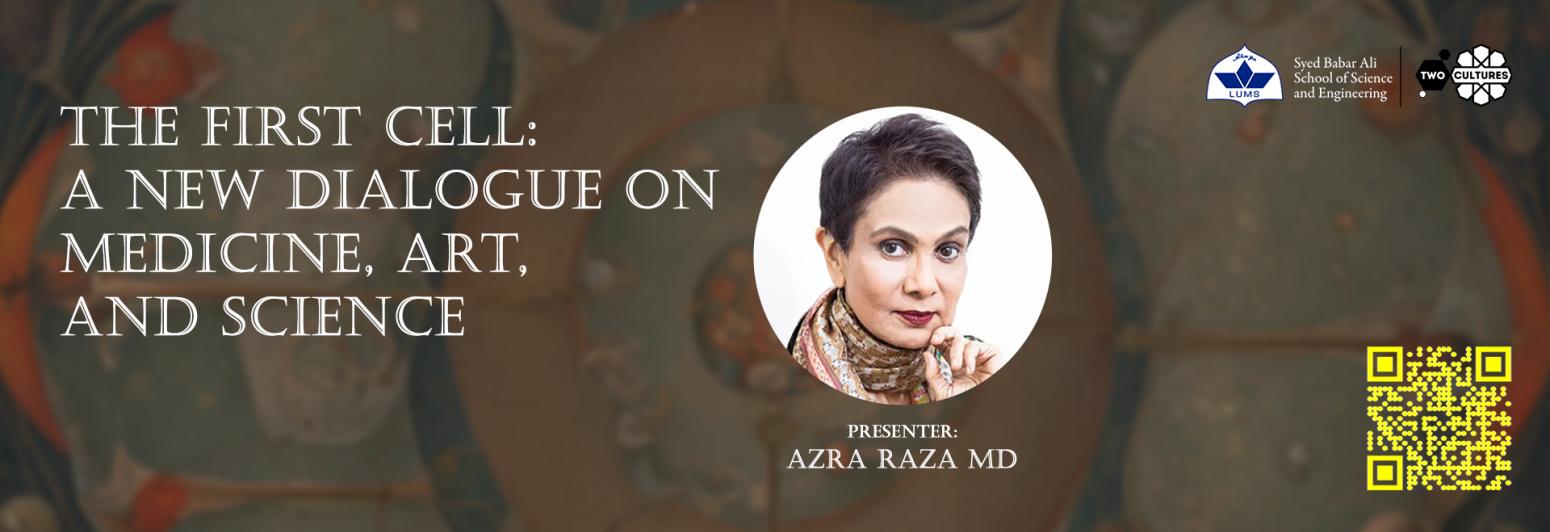
November 22, 2024
How can these three unrelated questions be brought into a relationship?
In her groundbreaking book The First Cell, Dr. Azra Raza explores the complexity of cancer treatment, shedding light on the dichotomies that shape contemporary medical practice and scientific research. In this talk, we intend to delve into these complexities, asking her questions related to how medicine, art, and the philosophy of healing may navigate these tensions. Three central themes emerge: Art vs. Pathology, Individual vs. the Universal, and Mouse Models vs. the Slash-Poison-Burn approach in cancer treatment.
The first contrast between Art and Pathology questions why contemporary medical practice focuses on the success stories and avoids discussing death and suffering. It considers whether the healing potential of art and poetry—deeply rooted in human experience—can enrich medical practice, moving beyond science to address the emotional and psychological toll of diseases like cancer. The second theme examines the tension between population-based medical guidelines and the unique experience of each patient. Evidence-based medicine provides universal protocols, yet the individuality of a patient's response to treatment remains irreducible. Finally, the talk will address the Mouse Model vs. Slash-Poison-Burn debate, focusing on the limitations of current cancer research paradigms. Dr. Azra critiques the persistent use of flawed animal models and calls for a paradigm shift: to focus on detecting the first cancer cell, rather than the last. This plea for scientific innovation invites a rethinking of both medical and research practices, suggesting that interdisciplinary collaboration—between the arts, humanities, and sciences—might offer the breakthrough oncology needs.
To learn more, join us for this thought-provoking lecture, hosted by the Two Cultures Initiative.
Registration
To register for this event, click here.
About the Speaker
Dr. Azra Raza is a Professor of Medicine and Director of the Myelodysplastic Syndromes (MDS) Center at Columbia University. Born in Karachi, Pakistan, she pursued her medical education at Dow Medical College, driven by an early passion for biology. With a research focus on MDS dating back to 1982, she has held prestigious roles at Rush University and the University of Massachusetts, where she led major hematology-oncology programmes and established a vast tissue repository. Dr. Raza has published extensively in top-tier journals and authored the critically acclaimed book The First Cell: And the Human Costs of Pursuing Cancer to the Last. She also co-authored Ghalib: Epistemologies of Elegance, showcasing her literary engagement with Urdu poetry.
About the Two Cultures Initiative
The Two Cultures Initiative is an interdisciplinary forum intended for scholars from the natural sciences, social sciences, engineering, and humanities to come together and explore points of intersection between science, society, and culture with the goal of collaborative inquiry into the university’s core concerns.



















